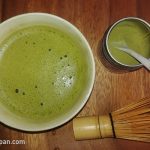
Takeaways
• The hot bath benefits includes blood pressure and blood sugar reduction, weight lost, good sleep and better mood
• The hot bath temperature ranges between 104°F and 110°F (40-43°C)
• Epsom salts and essential oils make your bathing more relaxing
• Take precautions and look for medical advice if you have pre-existing conditions.
Hot baths benefits are known for thousands of years. Hot bathing and sauna sweating are traditionally used in many cultures to prevent and cure some diseases.
The massive longitudinal study of Japanese adults indicated that bathing in hot water is a significant factor in preventing cardiovascular disease. 30,076 people ages 40 to 59, without a history of cardiovascular disease or cancer participated in the study for 19 years, from 1990 until 2009. Study participants were separated into groups by bathing frequency during the week.
The study showed that regular bathing in hot water lowers the risk of dying from a heart attack, heart disease, and stroke. Most benefits are received when taking a hot bath a few times a week, up to every day for the maximum result. Study participants who took a hot bath once a day had a 28% lower chance of overall cardiovascular disease and a 26% lower risk of stroke.
Water temperature is a factor as well. Participants who prefer warm water had a 26% lower risk of cardiovascular disease while individuals, who like hot water more, showed a 35% drop for the same conditions.
Deeping in the hot water is associated with dilation and relaxation of blood vessels that, in turn, cause a cardiac output improvement, lower blood pressure and blood sugar.
Other Health Benefits of Taking Hot Baths
Besides cardiovascular health, the benefits of soaking in hot water are numerous and include the following:
Muscle & Joints Relaxation
Heat from hot baths as well as saunas cause sore muscles and joints relax, reducing stiffness and quicker recovering. Cheap and very effective Epsom salt increases this effect.
Better Sleep
Hot baths before bed is a way to get a quality sleep. Our body temperature drops at night which encourages the body to produce a sleep hormone – melatonin. A hot bath intensifies this process by heating the body first and then cooling it after the bath.
Elevated Mood
Soaking in a hot bath or hot springs is relaxing not only for the body but also for your mind. This effect might be increased by using Epsom salts as mentioned above as well as a variety of essential oils.
Help Lose Weight
Hot bathing or sweating in sauna enhance the effects of diet and exercise, helping with fat loss. A hot bath might burn as many calories as moderate cycling, according to the British study.
Relieve Cold and Flu Symptoms
Bathing in hot water helps deal with symptoms of cold and flu such as the runny nose or cough and it also helps the immune system fight infections.
Lower Blood Sugar and Inflammation
British study has found that hot baths are beneficial for lowering overall inflammation throughout the body as well as lowering blood sugar. The effects are especially appealing to people who don’t exercise.
Lower Blood Pressure
Bathing in the hot tub or hot springs, sweating in sauna or steam rooms reduce arterial stiffness and blood pressure. According to the research in the United Kingdom, hot temperatures may have additional positive effects on cardiovascular health by improving blood vessel conditions as well as lowering blood pressure.
Hot mineral springs, dry sauna, and steam rooms are also associated with multiple health benefits if done on a regular basis.
How to Take Hot Baths?
The hot bath temperature ranges between 104°F and 110°F (40-43°C). However, the temperature shouldn't exceed 111°F. The water of 112°F can cause burn after 25 minutes of bathing. The higher temperature, the less time is required to injure your skin.
The optimum water temperature in your hot bath is something you should find by yourself depending on your desire and needs. Feel free to experiment and find the most optimum temperature for you personally, but increase temperature gradually.
Adding Epsom salts, essential oils or bath foam helps make the baths more relaxing. Aim to soak for 10-15 minutes paying attention to how you feel. You can gradually increase the length of soaking.
Side Effects of Hot Bathing & Other Precautions
As with everything, moderation is the key when taking hot baths. Too hot over 112°F can cause burns; so, always check the temperature before you get in and get in slowly.
Note: What is fine for a hand can be too much for the body.
It is a good idea to keep your head out of the water since this helps prevent overheating. However, overheating can still happen if you sit in the bath long enough, and/or the water temperature is too hot. Don’t overdo it and pay attention to how you feel. If you are experienced with slight symptoms of overheating, you should finish your session.
Hot bath is dangerous during pregnancy, for babies, and elderly with pre-existing conditions. Hot water can worsen some skin conditions. Always look for medical advice if you have any doubts.
Hot temperature causes sweating and, as a result, dehydration. It might sound counterintuitive, but you can get dehydrated while laying in the bath. Pay attention to signs of thirst and make sure to drink plenty of liquids.
- Tomohiko Ukai, et al. "Habitual tub bathing and risks of incident coronary heart disease and stroke". 2019. BMJ Journals.
- "Faulkner S.H., et al. "The effect of passive heating on heat shock protein 70 and interleukin-6: A possible treatment tool for metabolic diseases?" 2017.
- Vienna E. Brunt, et al. "Passive heat therapy improves endothelial function, arterial stiffness and blood pressure in sedentary humans". 2016. NCBI The American Journal of Clinical Nutrition.







